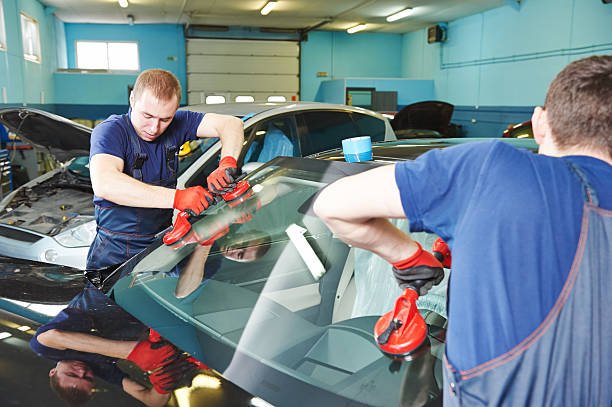The Surprising Impact of Auto Glass on Vehicle Weight
The dynamic landscape of automotive design is constantly driven by the pursuit of efficiency, leading to groundbreaking innovations that are reshaping the industry. Among these, the role of auto glass in reducing vehicle weight has emerged as a key area of focus. For a long time, the contribution of glass to a vehicle's weight and performance wasn't given much thought in the broader context of automotive design.
However, recent developments have brought to light the significant impact that auto glass can have. Far from being just a passive component, the type of glass used in vehicles is now recognized as a crucial factor in decreasing overall weight, thereby enhancing performance and fuel efficiency. This revelation marks a paradigm shift, positioning auto glass not as a mere functional element, but as an integral part of the drive towards lighter, more efficient vehicles.
As we delve deeper into this subject, we uncover the transformative potential of auto glass, revealing its pivotal role in the advancement of modern automotive technology and its contribution to the creation of vehicles that are not just lighter and faster, but also more fuel-efficient and environmentally friendly.
1. Understanding the Weight Factor in Vehicles
The weight of a vehicle is a crucial factor that affects many aspects of its performance, including fuel efficiency, speed, handling, and emissions. Heavier cars require more energy to move, which means they consume more fuel and produce more emissions. This is why car manufacturers are constantly looking for ways to reduce the weight of their vehicles.
2. Auto Glass: The Traditional and the Innovative
Traditionally, auto glass has been made from standard, relatively heavy glass. This glass provides essential features such as visibility, protection from elements, and structural integrity. However, it also adds a significant amount of weight to the vehicle.
In recent years, manufacturers have started experimenting with new types of glass that are lighter yet still provide the same, if not better, functionality. Advanced materials like Gorilla Glass, which is used in smartphones, are being adapted for automotive use. This glass is thinner and lighter than traditional auto glass but is incredibly strong and durable.
3. Benefits of Lighter Auto Glass
The primary benefit of using lighter auto glass is the reduction in overall vehicle weight. This reduction has a ripple effect on various aspects of the vehicle's performance:
- Improved Fuel Efficiency: Lighter cars require less energy to move, which means they use less fuel. This is particularly important in the era of environmental consciousness and rising fuel prices. Understanding how auto glass affects fuel efficiency is crucial in this context.
- Enhanced Performance and Handling: A lighter vehicle has better acceleration and braking performance. It also handles better, providing a more responsive and enjoyable driving experience.
- Lower Emissions: Reducing a vehicle’s weight contributes to lower carbon emissions, aligning with global efforts to combat climate change.

4. Safety and Durability Concerns
One might wonder if lighter glass compromises safety or durability. The good news is that advanced lightweight auto glass is designed to maintain, or even enhance, the safety features of traditional glass. It undergoes rigorous testing to ensure it can withstand impacts and provide the necessary protection to passengers. Furthermore, the impact of damaged auto glass on car resale can be significant, which underscores the importance of maintaining the integrity of your vehicle's glass.
5. Design and Aesthetics
Lighter auto glass allows for more flexibility in design. It can be molded into different shapes, enabling more aerodynamic and visually appealing car designs. This flexibility opens up new possibilities for car manufacturers to explore innovative designs without being constrained by the weight and rigidity of traditional glass.
6. Cost and Availability
As with any new technology, the cost of lightweight auto glass is initially higher than that of traditional glass. However, as the technology becomes more widespread and production scales up, the cost is expected to decrease. Moreover, the long-term savings in fuel and the potential increase in vehicle value can offset the initial investment. Additionally, timely auto glass repair is essential to maintain these benefits and avoid further expenses.
7. The Future of Auto Glass in Cars
The role of auto glass in vehicle weight reduction is an exciting area of development. As more manufacturers adopt this technology, we can expect to see lighter, more efficient, and more environmentally friendly vehicles on the roads. This innovation is a step towards a future where cars are not only a mode of transportation but also a contributor to environmental sustainability.
What Does This Mean for Car Owners?
For car owners, the advent of lightweight auto glass means access to vehicles that are more efficient, perform better, and have a lower environmental impact. While the initial cost may be higher, the long-term benefits, both in terms of savings and performance, are significant.
The role of auto glass in vehicle weight reduction is a testament to the ongoing innovation in the automotive industry. By focusing on every aspect of the vehicle, including traditionally overlooked areas like the windshield and windows, manufacturers are pushing the boundaries of what's possible. This focus on lightweight materials is not just about making cars faster or more fuel-efficient, it's part of a broader move towards sustainability and environmental responsibility. As this technology becomes more mainstream, it paves the way for a new generation of vehicles that are lighter, safer, and more in tune with the needs of both the planet and the people who drive on it.
